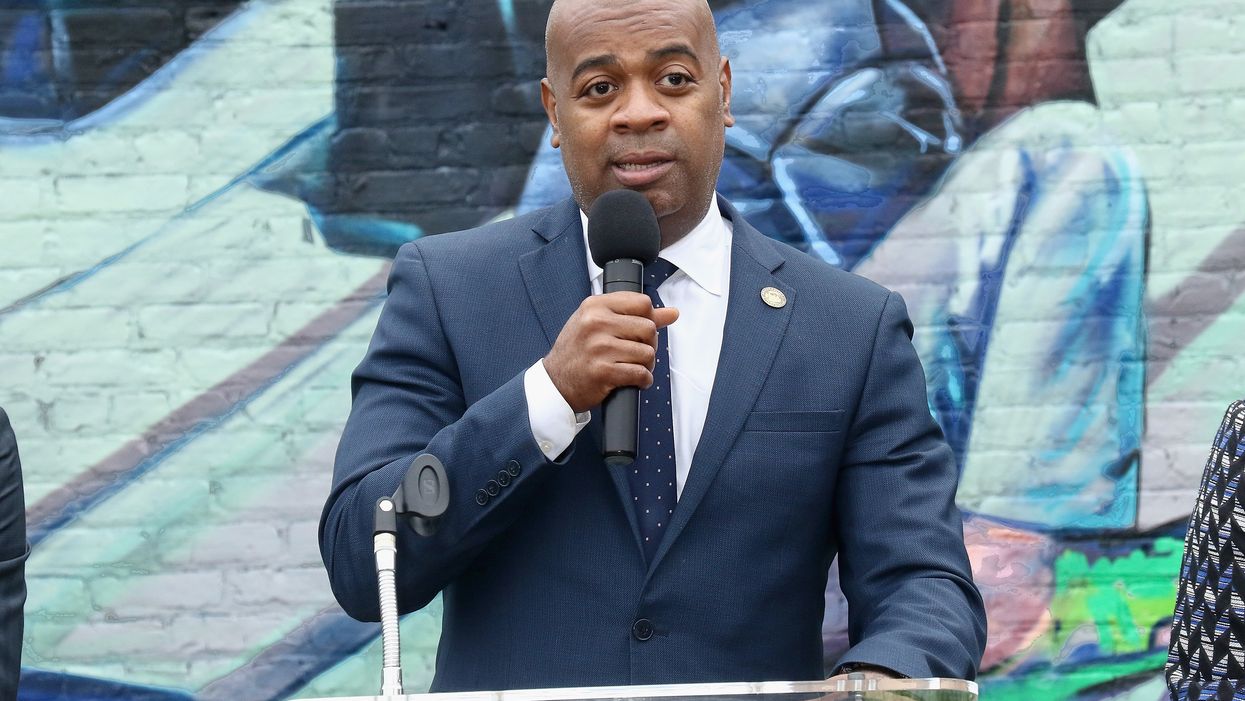
Newark Mayor Ras Baraka (Jim Spellman/Getty Images)

'The problems we have belong to all of us'
The mayor of the largest city in New Jersey announced recently his plan to explore the possibility of universal basic income for all residents, WNYW-TV reported.
Newark Mayor Ras Baraka said last Tuesday that he would be creating a task force and pilot program to determine whether or not the plan would be feasible for the city of 280,000.
"We believe in universal basic income, especially in a time where studies have shown that families that have a crisis of just $400 in a month may experience a setback that may be difficult, even impossible, to recover from," Baraka said, according to WNYW.
Baraka, who made the announcement during his State of the City address at the New Jersey Performing Arts Center, didn't provide further details on how the city would fund such a program.
Universal basic income typically provides a guaranteed monthly income to residents regardless of their employment status.
The mayor reportedly touted the city's economic progress just before announcing his plan to explore universal basic income.
"The problems we have belong to all of us, not just a few of us so the solutions must be collective and not individual," Baraka said, according to Fox News.
About one-third of the city's residents are living in poverty, he added.
Last month, Stockton, California, launched its 18-month universal basic income pilot program. In February, 100 residents began receiving $500 a month with no strings attached.
In July, city officials in Chicago formed a task force that has since recommended an 18-month test that would provide $1,000 a month to 1,000 participants.
"It is time for cities like Chicago to lead a national dialogue on income inequality, and in part of that, recognize that there is a coming storm," Alderman Ameya Pawar told WBEZ-FM. "This sort of confluence of student loans, a lack of affordable housing, and the cost of child care is ... impacting people from the upper middle class all the way down to the working poor. And that is something we're not talking about."
A pilot program in Ontario, Canada, was ditched after lawmakers determined it wasn't sustainable.
"It was certainly not going to be sustainable. Spending more money on a broken program wasn't going to help anyone," Lisa MacLeod, the Ontario minister responsible for social services, said in July.
Similarly, Finland ended its two-year experiment that gave 2,000 unemployed citizens about $650 per month with no strings attached and no requirement to gain employment.
A preliminary report issued last month showed that those who received the monthly stipend were no more likely to gain employment than those who were part of the control group and didn't receive the basic income.
"On the basis of an analysis of register data on an annual level, we can say that during the first year of the experiment the recipients of a basic income were no better or worse than the control group at finding employment in the open labor market," said Ohto Kanninen, research coordinator at the Labour Institute for Economic Research, according to Bloomberg.